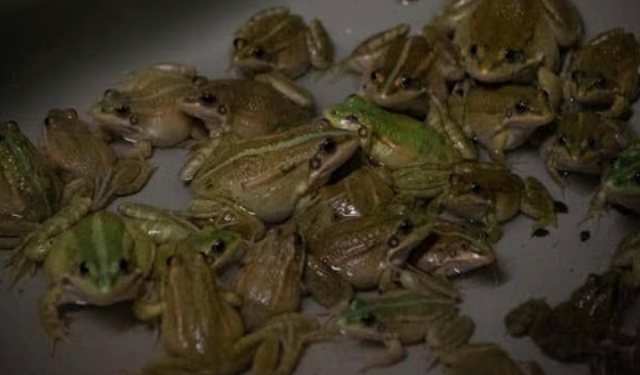Embracing Frog Farming in Isan
A New Agricultural Opportunity
In Thailand’s Isan region, frog farming has emerged as a vital income source during the dry season, when traditional crops often fail. This innovative practice allows farmers to cultivate edible frogs, which are in high demand in local and regional markets. By leveraging small ponds and minimal resources, farmers are finding a sustainable way to supplement their earnings. The resilience of frog farming offers a promising alternative to conventional agriculture, helping communities thrive despite challenging climatic conditions.
Economic Benefits of Frog Farming
Boosting Farmer Incomes
Frog farming provides Isan farmers with a steady revenue stream, as the amphibians fetch high prices due to their culinary popularity. Unlike rice or other crops that struggle in arid conditions, frogs require less water and can be raised efficiently. This low-cost, high-return venture enables farmers to cover household expenses and invest in their farms. The economic uplift from frog farming also supports local businesses, as farmers purchase supplies and services, fostering community-wide prosperity.
Sustainable Practices in Frog Farming
Eco-Friendly Farming Solutions
The environmental advantages of frog farming make it an attractive option for Isan’s dry season. Farmers use natural feeding methods, such as insects and organic waste, reducing reliance on chemical inputs. The small-scale ponds used for breeding have a minimal ecological footprint, preserving local water resources. By adopting these sustainable practices, farmers not only protect the environment but also ensure the long-term viability of their operations, aligning with global trends toward eco-conscious agriculture.
Future Prospects for Isan Farmers
Scaling Up Frog Farming Initiatives
As frog farming gains traction, there is potential for Isan farmers to expand their operations and tap into broader markets. Training programs and government support could enhance breeding techniques and improve market access. By forming cooperatives, farmers can collectively negotiate better prices and share resources. The success of frog farming highlights the importance of innovative agriculture in building resilient rural economies, paving the way for a brighter future for Isan’s farming communities.








